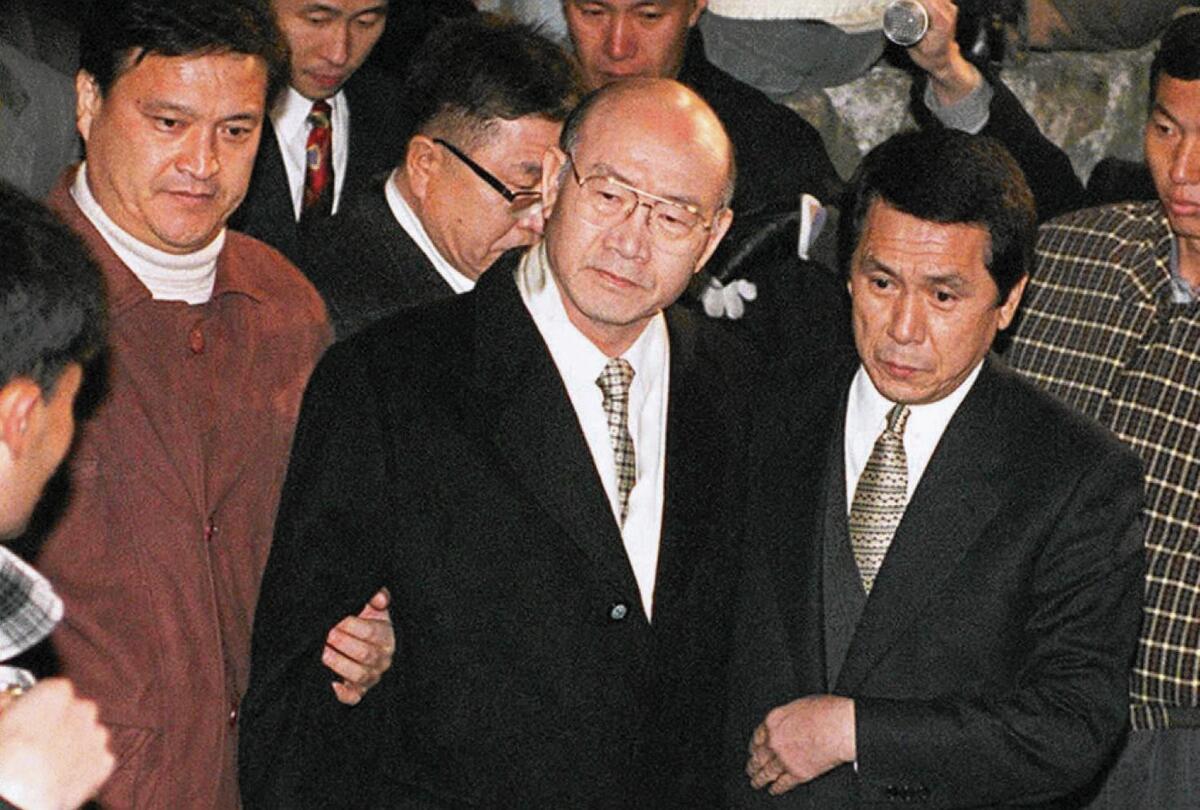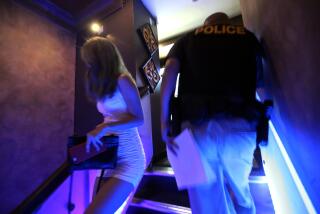South Korea’s ex-dictator Chun Doo-hwan tries to keep low profile in his twilight years

reporting from Seoul — In one of the stately homes in this leafy part of town, a disgraced former president is living out his twilight years. Chun Doo-hwan was the face of the repressive government that led this country throughout much of the 1980s; these days he mostly stays behind the walls of his police-protected compound.
It’s no wonder that Chun, 84, came to this neighborhood, called Yeonhui, seeking seclusion. It has plenty of stand-alone houses in a country where most people live in apartments. With its narrow streets and abundant pine trees, it is also one of the calmer corners of the capital. On a recent afternoon, the streets around the compound had few cars or pedestrians, a rarity in this noisy, densely packed city of more than 10 million.
Nevertheless, Chun still finds himself in the headlines as officials in South Korea and the U.S. work to get back the millions of dollars he procured in kickbacks from major companies while he ruled from 1979 to 1988. This month, U.S. prosecutors returned to South Korea $1.1 million in seized assets connected to Chun. That amount is a drop in an ocean of ill-gotten spoils that Chun had amassed during his presidency.
In 1996, a South Korean court found him guilty of having stashed away huge sums in slush funds and ordered him to pay back $229 million in criminal restitution. A task force dedicated to collecting the money was due to disband in 2013, but that year, the South Korean parliament extended its mandate until 2020.
Chun insists that his opulent digs don’t reflect his financial situation. A few years ago, with most of the fine still unpaid, he pleaded poverty, saying that he had less than $300 to his name. Given his lifestyle and the size of the fortune he amassed, that claim provoked ridicule. Political pop artist Lee Ha made a mocking mug shot of Chun, depicting him in prison garb holding a check for 290,000 Korean won, all the money he claimed to possess.
Chun is sometimes spotted at expensive golf courses, and in 2012, he was photographed at one of Seoul’s ritziest hotels during his granddaughter’s wedding.
In the summer of 2013, prosecutors raided Chun’s home, seizing cash, artwork and other valuables. They also searched properties owned by Chun’s son and daughter, on suspicion that he has concealed some of his assets in their names. (This month’s return by U.S. prosecutors included proceeds from a Newport Beach house Chun’s son had sold.)
Chun seized power in a coup after the 1979 assassination of dictator Park Chung-hee. It was a chaotic time, with South Korea’s economy booming but its politics still authoritarian. Contending that strict controls on civic and political rights were necessary to keep order, Chun cracked down on public gatherings and imprisoned dissidents, making him a feared leader.
He nonetheless enjoyed U.S. support for much of his rule. “Stability in Seoul was a central U.S. objective, at times an overriding one,” wrote Don Oberdorfer in “The Two Koreas,” a contemporary history. “American officials were leery of undermining Chun and thereby destabilizing the country with unpredictable results.”
In 1988 Chun gave in to public pressure and left office, paving the way for South Korea’s first democratic election. In doing so, he became the first South Korean president to give up office in a peaceful manner.
Chun, though, is mainly remembered for presidential misdeeds, including the orchestration of the 1980 Gwangju massacre. He ordered troops to fire on student protesters in the southern city who were calling for him to step down. Hundreds were killed or injured.
For his actions in Gwangju and the coup he led, Chun was sentenced to death in 1996. The following year he and Roh Tae-woo, another former military dictator, were pardoned and released from custody. Kim Young-sam, president at the time, said the pardons were intended to nurture national reconciliation.
To this day, news outlets on both sides of the country’s political divide are critical of Chun and his tenure.
“It’s hard to find a good word for the butcher of Gwangju,” said Aidan Foster-Carter, honorary senior research fellow in modern Korea at Leeds University in England.
Some South Koreans are less than thrilled that a former president who sent in the troops to attack his people now lives under police protection, with taxpayers footing the bill. Seoul Mayor Park Won-soon has spoken about dispensing with Chun’s police guard, but three officers continue to stand sentinel outside the gated compound, not in police uniform, but dressed head to toe in black, with no identifying insignia. They shoo away anyone who lingers too long in front of Chun’s place.
When asked why no one is allowed to stand around or take photos, their only response is, “It’s policy.”
At a nearby store, one middle-aged woman shopping for flowers said of Chun, “He’s just another neighbor.”
His name still seems to conjure anxiety in neighborhood residents old enough to have lived through his iron-fisted rule, when criticism could have landed one in jail. Another middle-aged woman, sweeping up leaves outside the gates of her home, giggled sheepishly when his name was mentioned. “He’s very old now,” she said.
Borowiec is a special correspondent.
ALSO
Colorado embodies nation’s divide over gun control
Paris climate conference expected to bring historic deal on emissions
Boy’s murder conviction sharpens debate on whether juveniles are fit to waive rights
More to Read
Sign up for Essential California
The most important California stories and recommendations in your inbox every morning.
You may occasionally receive promotional content from the Los Angeles Times.










